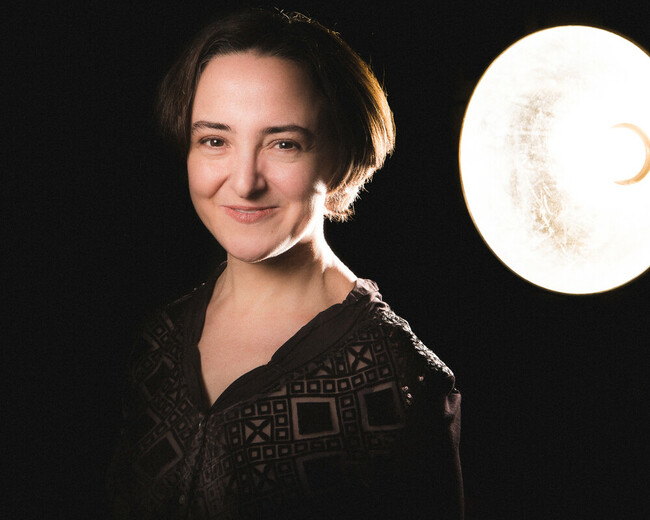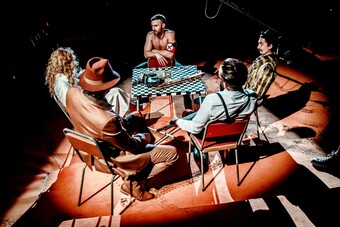
Julieanne Ehre is the director of Pivot Arts, a home for adventurous and multidisciplinary performance in Chicago.
Julieanne Ehre is the director of Pivot Arts. She both leads the organization and curates, develops, and produces performances including the Pivot Arts Festival. Ehre is the creator and producer of the Pivot Arts Podcast. She was the NEA/TCG New Generations “Future Leaders” Fellow at the Goodman Theatre where she served as Producer on Latino Theatre Festival, New Stages Series, and conceived of and produced the Goodman’s Artists Talk series — producing discussions with artists such as Philip Seymour Hoffman. At the Goodman, she focused on International Initiatives including the Global Exploration of Eugene O’Neill with the Wooster Group, Ivo van Hove and other world-class artists. Julieanne served as a delegate to the Santiago a Mil Festival in Chile and the ITI World Theater Congress in Xiamen, China through Theater Communications Group and was the Co-Chair of the Arts and Culture Committee for Chicago’s 48th Ward. As the Artistic Director of Greasy Joan & Co. for five years, she won an “Abbey Award” from the Arts and Business Council for the organization’s strategic planning. At Greasy Joan, she directed and produced critically acclaimed and premiere adaptations of classic plays and worked as a freelance theater director. Ehre holds an MFA in Directing from Northwestern University and a BA in Anthropology from Grinnell College.

